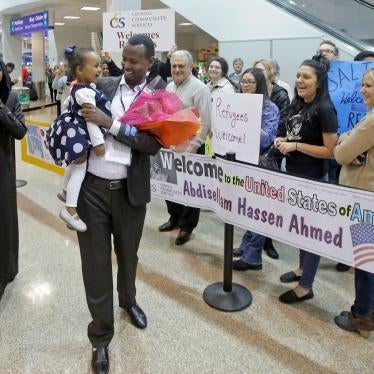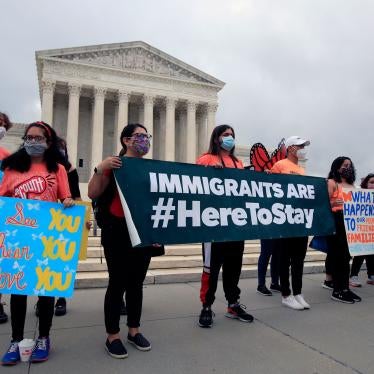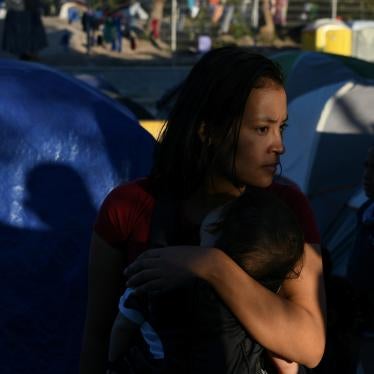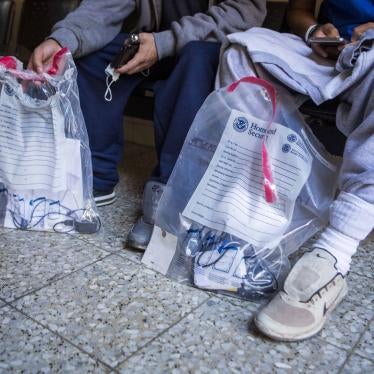Secretary Alejandro Mayorkas
Department of Homeland Security
by electronic mail
Dear Secretary Mayorkas:
We write to express several urgent concerns about your September 29, 2021, announcement of the Law Enforcement Coordination Council (LECC). We appreciate and concur that the subject-matters covered by the LECC’s first two sub-committees, use of force and law-enforcement training techniques and curricula, are overdue for scrutiny. Although these topics are far from the only areas needing attention, they rightly echo elements of law- enforcement reform agendas submitted by leading advocates to you and other administration officials.
From our perspective, these issues have not received the department’s adequate prioritization or external engagement this year; nor do fundamental transparency and accountability problems appear to be a central focus. DHS’s default law-enforcement response to humanitarian needs at the border must be reexamined root and branch, as it contributed to the grotesque anti-Black violence against Haitian migrants by Customs and Border Protection agents in Del Rio. The agents’ words and actions shocked the world, but many of us have witnessed and complained about similar anti-Black and other inhumane practices for decades.
Therefore, given the persistence and gravity of abuse and misconduct, it is deeply problematic in our view that the LECC was announced as an internal DHS body with vague assurances that it “will also coordinate closely with partners across every level of government, as well as with other key stakeholders.” No consultation with our groups or other key stakeholders took place before this announcement (just as CBP’s August body-camera release, which claimed to include Del Rio agents, went out without border advocates’ input). With respect, many of our organizations and the communities we represent spent an enormous amount of time on arm’s-length engagement in multiple fora during the Obama-Biden administration, yet problems have worsened.
We urge you to reconsider two aspects of the LECC structure:
First, the LECC should have full and equal representation from external, independent experts on the key principles you identified: “rigorous protection of civil rights and civil liberties and respect for privacy, a data-driven focus on preventing implicit bias, the promotion of standards that prohibit profiling and enhance de-escalation techniques, policies that support mental health, and strategies to increase trusted community engagement.” This includes permanent membership by a critical mass of Black-led organizations and directly-impacted individuals, as well as border NGOs and community members.
Second, the Department of Justice should become central to oversight at DHS, for both CBP and ICE. CBP’s National Use of Force Review Board incorporates full participation by DOJ’s Civil Rights Division (CRT), and we are troubled that the LECC does not. Aside from including DOJ CRT in all the LECC’s work, we urge you to formally request a novel, but necessary, investigation of Border Patrol by the Department of Justice, focused on systemic rights violations.
We await your promised public results of the Del Rio investigation but strongly reject any “bad apple” absolution of CBP’s history of systemic racism, a term you invoked but, respectfully, need to act on. The hundreds of Black and Brown immigrant deaths and thousands of abuse reports related to CBP tell a very different story, one that illustrates a deeper, entrenched culture of abuse and disregard for the rights of many people with whom Border Patrol agents and CBP officers interact.
After years of repeated and widespread systemic integrity issues at CBP and ICE, it seems patently clear that there are cultural problems with DHS policing practices. It is often emphasized in the context of police reform efforts—as stressed by President Obama’s 2015 Task Force on 21st Century Policing—that “organizational culture eats policy for lunch.” The gulf, for example, between CBP’s perceptions and representations and those of essentially every organization engaged in border-related service provision, community organizing, and abuse documentation speaks loudly to the added importance of external participation in the LECC’s work and beyond.
If most everything is well at CBP and ICE, then that will be validated first-hand by trusted community advocates and impacted individuals. But if the opposite is true and you forge ahead with insular DHS-only oversight and structurally flawed attempts at self-accountability, your tenure will miss a critical opportunity to change course. The Task Force was crystal clear on this point: “Any law enforcement organization can make great rules and policies that emphasize the guardian role, but if policies conflict with the existing culture, they will not be institutionalized and behavior will not change.”
We would value meeting with you as soon as possible to discuss the matters raised here and hope you promptly rectify these two serious omissions from the LECC’s membership, as described above. Thank you for your consideration; please contact Iman Boukadoum, Director, Human Rights & Extremism, Human Rights First, to schedule our meeting.
Sincerely,
Council on American-Islamic Relations (CAIR)
Human Rights First
Human Rights Watch
Immigrant Legal Resource Center
Immigration Hub
Project On Government Oversight
Southern Border Communities Coalition
Texas Civil Rights Project
UndocuBlack Network
cc: Katherine Culliton-González, Officer for Civil Rights and Civil Liberties
Angela Kelley, Senior Counselor on Immigration, DHS
Ashley Feasley, Director of Policy, CBP
Deborah Fleischaker, Assistant Director for Policy, ICE
Tyler Moran, Deputy Assistant to the President and Senior Advisor for Migration
Esther Olavarria, Deputy Director of the Domestic Policy Council for Immigration








